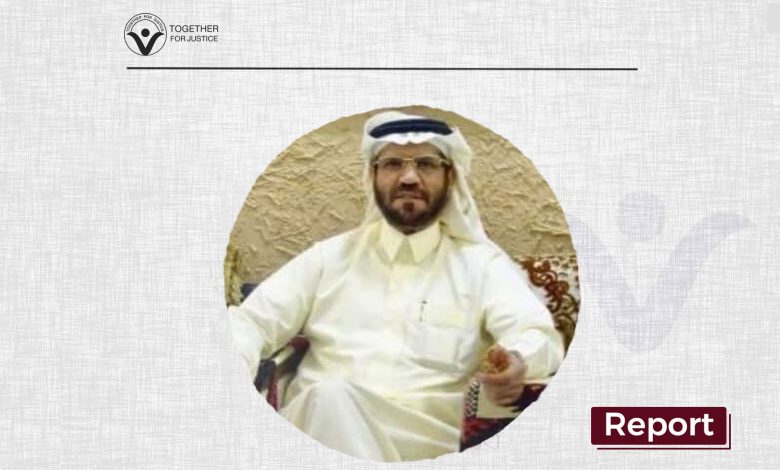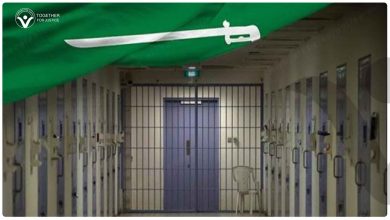Saadallah Al-Hawali’s 14-Year Sentence: A Grim Example of Collective Punishment in Saudi Arabia

In a stark example of the ongoing repression in Saudi Arabia, Saadallah Al-Hawali, the younger brother of the prominent scholar Sheikh Safar Al-Hawali, has been subjected to severe and unjust treatment by the Saudi authorities. In January 2023, his prison sentence was escalated from 4 years to 14 years, following direct orders from the government, without any legal justification, especially considering that his initial sentence had already been served.
Saadallah’s ordeal began in July 2018, when Saudi security forces raided his home, arrested him, and held him in an undisclosed location for years before he was secretly sentenced to 4 years in prison on fabricated charges. The charges were linked to the suspicion that Saadallah had leaked a digital copy of his brother’s book, “Muslims and Western Civilization,” a text that criticizes corruption and excessive spending on unproductive activities in the kingdom.
The recent escalation of Saadallah’s sentence is not an isolated incident but rather part of a broader strategy of collective punishment employed by the Saudi regime. The primary reason for this harsh treatment is his relationship with his brother, Sheikh Safar Al-Hawali, who is considered an enemy of the state despite his advanced age and deteriorating health. Sheikh Safar, who suffers from a broken pelvis, a past stroke, and severe kidney issues, has been imprisoned under harsh conditions, reflecting the Saudi government’s determination to silence dissent at any cost.
The Al-Hawali family’s suffering extends beyond Saadallah and Sheikh Safar. Abdullah, another family member, donated one of his kidneys to his father before being detained himself. With only one kidney, Abdullah requires a strict medical regimen and a clean, comfortable environment to prevent complications. However, the notorious conditions in Saudi detention facilities, particularly for political prisoners, exacerbate the risks to his health.
The collective punishment of the Al-Hawali family serves as a grim illustration of how the Saudi regime deals with those it perceives as threats. From humiliating arrests and enforced disappearances to secret trials without legal representation and restricted communication with the outside world, the authorities have systematically targeted the Al-Hawali family in an attempt to pressure them into submission. This strategy of targeting not just individuals but entire families is designed to create fear and suppress any potential dissent within the kingdom.
Moreover, Saadallah Al-Hawali has been denied basic medical care since his arrest, a tactic that the Saudi authorities have used against numerous political prisoners. Despite calls from human rights organisations and international observers, the Saudi government continues to keep Saadallah’s situation, along with that of many other political detainees, shrouded in secrecy. This veil of silence only adds to the suffering of the detainees and their families, who are left in a state of constant anxiety and uncertainty.
“Together for Justice” has called for the immediate release of Sheikh Safar Al-Hawali and his family members, emphasising the severe risks posed to their lives by their ongoing detention. They also demand the unconditional release of all prisoners of conscience whose only crime is peaceful opposition to the regime.
The case of the Al-Hawali family is a stark reminder of the lengths to which the Saudi government will go to suppress dissent. It underscores the urgent need for the international community to hold the Saudi regime accountable for its human rights abuses and to demand justice for those who are unjustly imprisoned. As the world continues to engage with Saudi Arabia, it must not turn a blind eye to the suffering of families like the Al-Hawalis, who have become collateral damage in the regime’s relentless pursuit of control.




